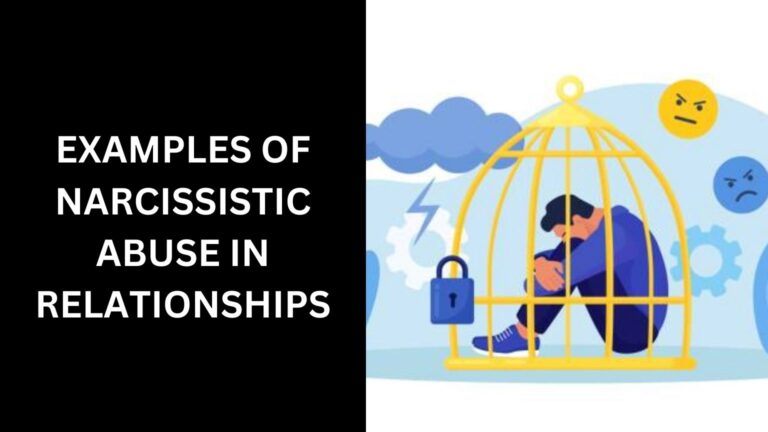4 Common Signs of Narcissist Cheating Patterns In 2024
Narcissist Cheating Patterns, Cheating is a betrayal that can shatter trust and leave emotional scars.
When dealing with a narcissist, however, the patterns of infidelity can be complex and deeply rooted in their personality disorder.
Understanding these patterns is essential for recognizing the signs and protecting oneself from further harm.

Introduction to Narcissist Cheating Patterns
Narcissism, a personality disorder characterized by an inflated sense of self-importance, a need for admiration, and a lack of empathy, can manifest in various aspects of a person’s life, including relationships.
Narcissists often engage in cheating behaviors as a means of bolstering their fragile egos and fulfilling their incessant need for validation.
Understanding Narcissistic Personality Disorder (NPD)
Narcissistic Personality Disorder (NPD) is a complex mental health condition characterized by a pervasive pattern of grandiosity, a constant need for admiration, and a lack of empathy for others.
Individuals with NPD often display a distorted sense of self-importance and may exploit others to achieve their own goals.
Definition and Characteristics
Narcissistic Personality Disorder (NPD) is a mental health condition characterized by a pervasive pattern of grandiosity, a constant need for admiration, and a lack of empathy for others.
Individuals with NPD often have an exaggerated sense of self-importance and may exploit others to achieve their own goals.
Types of Narcissistic Behaviors
Narcissistic behaviors can vary in intensity and presentation, but common traits include arrogance, manipulation, and a sense of entitlement.
These individuals may exhibit a charming exterior while harboring a deep-seated belief in their superiority over others.
Common Signs of Narcissist Cheating

Identifying the cheating patterns of narcissist requires an understanding of their unique behaviors and motivations.
Lack of Empathy
Narcissists lack empathy and are often unable to consider the feelings of others. When engaging in infidelity, they may dismiss the emotional consequences for their partner and focus solely on their desires.
Grandiose Sense of Self
A narcissist’s inflated sense of self-importance can lead them to believe that they are entitled to seek validation and admiration from multiple sources, including extramarital affairs.
Manipulative Behavior
Narcissists are skilled manipulators who can deceive and exploit others to serve their interests.
They may gaslight their partners or use emotional manipulation to justify their cheating behavior.
Need for Validation
Despite their outward confidence, narcissists have fragile self-esteem that requires constant validation.
Cheating may provide them with a temporary boost to their ego and reaffirm their sense of desirability.
How Narcissists Rationalize Cheating?

Understanding the thought processes behind narcissistic infidelity can shed light on their rationalizations and justifications.
Blame-Shifting
Narcissists often deflect responsibility for their actions onto others. They may blame their partner for their own dissatisfaction or justify their infidelity as a response to perceived shortcomings in the relationship.
Entitlement
Due to their grandiose sense of self, narcissists may believe that they are entitled to pursue extramarital affairs without consequence.
They may view their partner as an extension of themselves and feel justified in seeking validation elsewhere.
Lack of Accountability
Narcissists rarely take responsibility for their actions and may deny or minimize the impact of their cheating behavior.
They may manipulate the narrative to portray themselves as the victim or justify their actions as necessary for their own happiness.
(Narcissism exists on a spectrum)
Impact of Narcissist Cheating
The consequences of narcissistic infidelity can extend beyond the immediate betrayal, leaving lasting emotional scars on their victims.
Emotional Trauma
Discovering a partner’s infidelity can cause profound emotional trauma, including feelings of betrayal, anger, and shame. Narcissists may exacerbate this pain through gaslighting or invalidating their partner’s emotions.
Gaslighting
Gaslighting is a common tactic used by narcissists to manipulate their partners and distort reality.
They may deny or trivialize their infidelity, causing their victims to question their own perceptions and sanity.
Distrust and Betrayal
The discovery of infidelity can shatter trust and undermine the foundation of a relationship.
Victims of narcissistic cheating may struggle to rebuild trust or may develop a pervasive sense of paranoia and insecurity.
Coping Strategies for Victims of Narcissist Cheating

Navigating the aftermath of narcissistic infidelity requires resilience and self-care.
Setting Boundaries
Establishing clear boundaries with the narcissist is essential for protecting oneself from further harm. This may involve limiting contact or seeking support from trusted friends and family members.
Seeking Support
Coping with the emotional fallout of infidelity can be overwhelming, and victims may benefit from seeking professional support through therapy or support groups.
Talking to a therapist can provide validation, perspective, and coping strategies for healing.
Self-Care Practices
Prioritizing self-care is crucial for rebuilding self-esteem and resilience in the aftermath of narcissistic infidelity.
Engaging in activities that bring joy and fulfillment can help restore a sense of autonomy and agency.
Seeking Professional Help
For those struggling to cope with the impact of selfish cheating, professional help is available.
Therapy and Counseling
Therapy can provide a safe space for processing emotions, exploring underlying trauma, and developing coping strategies for moving forward. A qualified therapist can offer support and guidance tailored to the individual’s needs.
Legal Assistance
In cases where infidelity has led to legal or financial repercussions, seeking assistance from a legal professional may be necessary.
A lawyer can guide navigating divorce proceedings, custody disputes, or other legal matters.
People also ask
How does a narcissist act when they are cheating?
When a narcissist is cheating, they may display secretive behavior, such as guarding their phone or computer,
being evasive about their whereabouts, or suddenly becoming more distant or defensive.
They may also gaslight their partner by denying or minimizing their actions, shifting blame onto their partner, or projecting their guilt onto others.
Additionally, they may exhibit a lack of empathy and disregard for their partner’s feelings while prioritizing their own desires and needs.
What words can destroy a narcissist?
Words that challenge a narcissist’s sense of superiority or expose their manipulative behavior can be particularly impactful.
These might include calmly pointing out inconsistencies in their actions, refusing to engage in their drama or manipulation, and setting firm boundaries to protect oneself from their toxic behavior.
Ultimately, withholding admiration and refusing to enable their ego can disrupt their power dynamic and prompt self-reflection.
What to do when a narcissist cheats on you?
When a narcissist cheats, prioritize your well-being by seeking support from trusted friends or family, setting clear boundaries to protect yourself,
and considering professional therapy to process your emotions and regain your self-esteem.
Ultimately, consider whether staying in the relationship aligns with your values and whether the narcissist is willing to take responsibility for their actions and make genuine changes.
Do narcissists know they are hurting you?
Narcissists may be aware that their actions cause pain, but they often prioritize their own needs and desires over the feelings of others.
They may rationalize or minimize the harm they cause and lack genuine empathy for others’ suffering.
Conclusion
In Conclusion, Navigating the complexities of narcissistic infidelity requires awareness, resilience, and support.
By understanding the patterns of narcissist cheating and prioritizing self-care, individuals can reclaim their sense of self-worth and rebuild their lives after betrayal.






